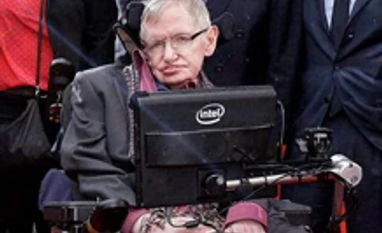World-renowned British physicist Stephen Hawking is set to trademark his name, joining the ranks of celebrities such as JK Rowling and David Beckham who have turned their names into brands.
Hawking, 73, has applied to the Intellectual Property Office to have his name formally registered, while another English physicist, Brian Cox, has already made the move.
For Hawking, whose fame was recently boosted by the Oscar-winning success of the film 'The Theory of Everything', the primary aim is to prevent others from exploiting his name with inappropriate products.
Hawking has also applied to trademark his name for charitable purposes, giving him the option of setting up a foundation, such as to promote physics, or for research into motor neurone disease, which has paralysed him, 'The Sunday Times' reported.
His trademark would cover computer games, powered wheelchairs, greetings cards and healthcare.
Chris McLeod, president of the Institute of Trade Mark Attorneys, said the move could be worth millions of pounds.
"It depends how successfully his advisers can license and market products and services. If he were to die, then the trademarks could be transferred to his foundation or offspring - they could be a never-ending monopoly," he said.
Hawking, 73, has applied to the Intellectual Property Office to have his name formally registered, while another English physicist, Brian Cox, has already made the move.
For Hawking, whose fame was recently boosted by the Oscar-winning success of the film 'The Theory of Everything', the primary aim is to prevent others from exploiting his name with inappropriate products.
More From This Section
"It's a personal matter for Stephen Hawking, it is not a university issue, but he has taken measures to protect his name and the success it has bought," said a spokesman for Cambridge University, where Hawking is director of research at the Department of Applied Mathematics and Theoretical Physics.
Hawking has also applied to trademark his name for charitable purposes, giving him the option of setting up a foundation, such as to promote physics, or for research into motor neurone disease, which has paralysed him, 'The Sunday Times' reported.
His trademark would cover computer games, powered wheelchairs, greetings cards and healthcare.
Chris McLeod, president of the Institute of Trade Mark Attorneys, said the move could be worth millions of pounds.
"It depends how successfully his advisers can license and market products and services. If he were to die, then the trademarks could be transferred to his foundation or offspring - they could be a never-ending monopoly," he said.
)